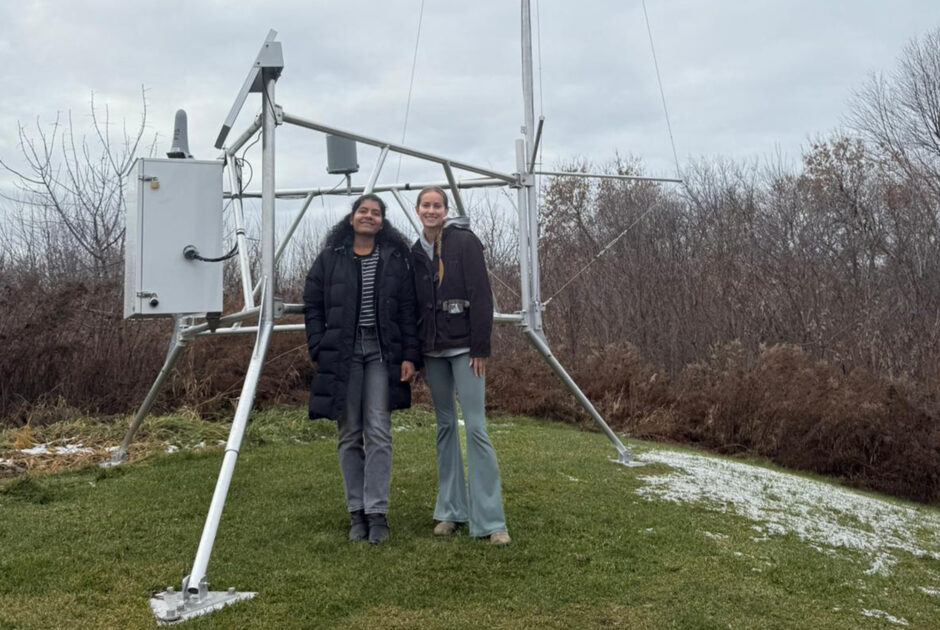First Person: Some English words and accents can be difficult for immigrants

Recently, my mother and I spent some time recounting all of the unfortunate English disasters I had experienced in our five years in Canada since immigrating from Nigeria.
“I remember at school asking for a ‘biro,’ and my friends and teachers were confused,” I said to my mom.
“Well, yes, did they end up giving you the ‘biro’?” my mom jokingly asked, knowing fully well how the story ended.
I had been in grade 9. I stood in front of my teacher for a few seconds explaining what a biro was, and thinking to myself “this is just so stupid.” I learned that day that it was not called a ‘“biro” but a “pen.”
I had never felt so dumb and embarrassed. How could the same language be so entirely different? I was clearly educated and had attended a private English-speaking high school, so what was the issue?
Back home in Nigeria, all high schools were required to teach English, diction and phonetics. Especially if you were in the senior level of the arts departments, which I was at the time, you were required to learn literature.
In total, students were learning in four different types of English courses, and for whatever reason, many of the words used commonly in Nigeria did not seem to be in common use here In Canada.
It has definitely been difficult trying to adapt to the Canadian vocabulary as an immigrant from another country. However, I have learned that I am not alone and many other immigrants had experienced the same situation.
Until we immigrated here I’d never realized how accents played a role in the English language. There would be moments when I would catch some phrases or words from people around me and wonder why they would pronounce that specific word in the way they did.
It sounded like the letters were intentionally omitted when pronouncing, even though that same letter was used to spell out the word. Specifically, words with the letter “t” like Ottawa, Toronto, and so on were pronounced without the “t.” Ottawa would sound like “Odawa,” and Toronto would sound like “Torono.”
My parents would sometimes tease me because I talked and felt like a completely different version of myself when I spoke with a “Canadian accent.” It did make me wonder if these so-called “accents” affected my identity, English language heritage and if I was becoming “whitewashed.”
Although that thought would be an exaggeration.
Eunji Jo, a second-year student in the illustration and concept art program at Algonquin College says that there are phrases in Korea called “Konglish,” which means a combination of Korean and English language.
“We just combine random English words and use it in our own way,” Jo said. “I’m from South Korea. A ‘rinse’ is basically washing away right? But it is one of the hair care products in Korea.” The words were the same but had a completely different meaning. South Korea identified the word “rinse” as hair products, however that same word held a different meaning when she said it here in Ottawa.
I thought that Jo was similar to me because the word was basically English but it had a completely different meaning to it in South Korea.
John Cloutier, a communications professor at Algonquin College, has worked with many students from different backgrounds. He explained that he had never come across a situation as mine before.
“I haven’t come across a situation where a student has used a word I did not understand, but I do teach students to refrain from using idioms and cliches because international students may not have the cultural context to understand these idioms and cliches,” he said.
Regardless, I had always felt judged and looked at weirdly whenever I said something completely different from the Canadian vocabulary. It almost felt like I was uneducated and did not know what I was talking about.
At one point, I thought of taking some English private lessons to help me improve my vocabulary. It felt bizarre at first, but I could not bear the situation of constantly embarrassing myself when speaking.
It definitely made me feel different, and I was not a fan of that feeling. But I have also been learning and growing too.
For instance, I recently learned that these so-called “pens” are also known as “ballpoint pens.” The “biro” is more under the British vocabulary and the latter is the American vocabulary.








